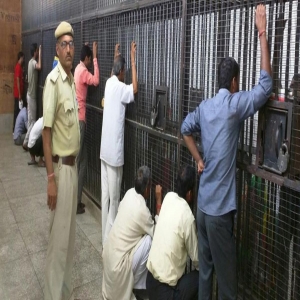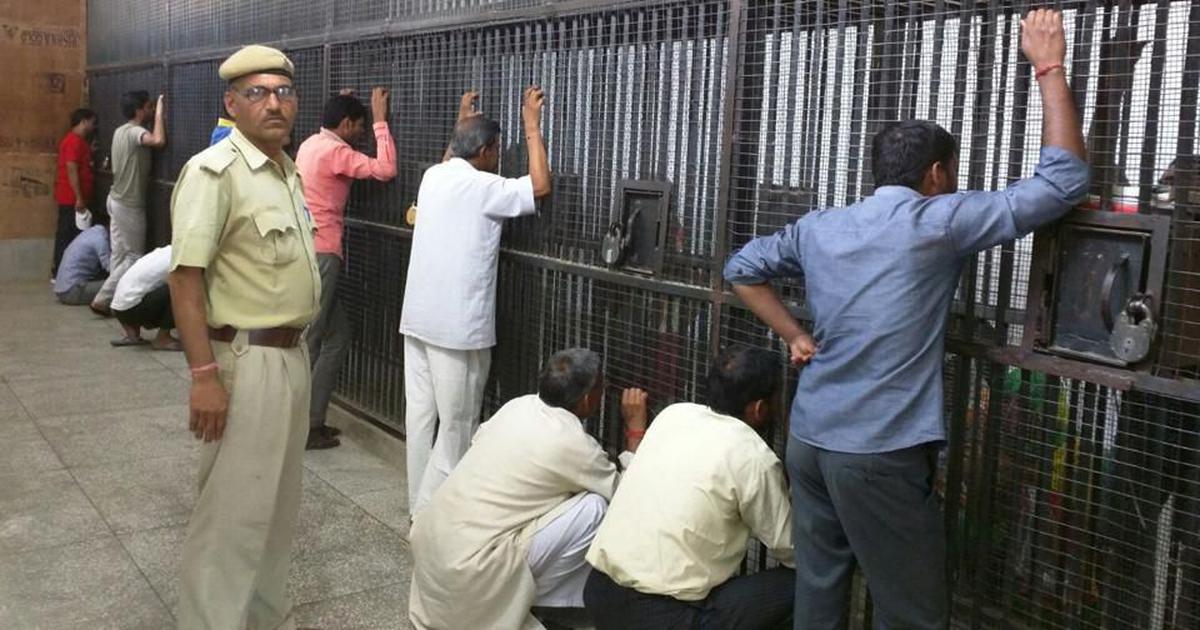
.png) Joseph Maliakan
Joseph Maliakan

According to data released by the National Crime Records Bureau (NCRB) in February 2024, as of December 2022, there were 4,34,302 undertrial prisoners in various jails in India, constituting 75.08% of the total prison population. The majority of the undertrial prisoners belonged to the oppressed communities in the country: 20.94 belonged to the Scheduled Castes, 9.26% were scheduled Tribes, and 35.88% came from economically, socially and educationally backward communities.
The number of undertrial prisoners in Indian Jails who have spent one to two years was 63,502; two to three years was 33,980; three to five years was 25,869; and above five years was 11,448. Uttar Pradesh had the maximum number of undertrial prisoners, 37,010, followed by Maharashtra, 12,692; West Bengal, 9,335; Madhya Pradesh, 8,262; and Punjab, 7,200. Lakshadweep is the only territory in India that has no undertrials. No crime has been reported in the Union Territory since independence.
Undertrials are deprived of many rights, including the right to vote. However, prisoners still have all constitutional rights, including the right to life and personal liberty. Prisons are state subjects, and they are administered by the states under archaic prison manuals made under British colonial rule. There have been talks about the need to reform prison manuals in tune with independent India's Constitution, guaranteeing all the rights under Articles 14 and 21 to every prisoner in India.
The Ministry of Home Affairs, Government of India, prepared a Model Prison Manual in 2016 with the objective of ensuring uniformity in the basic principles governing prisons and shared it with all states and union Territories for adoption. However, very few have followed up with changing the archaic prison rules, many of which violate the constitutional rights of the prisoners.
The Ministry of Home Affairs also reviewed the pre-independence Prisons Act, 1894, Prisoners Act, 1900, and Transfer of Prisoners Act, 1950, and prepared a 'Model Prisons and Correctional Services Act' in May 2023 for possible adoption by the states and the union territories.
In this context, a Bench of the Supreme Court comprising Chief Justice of India DY Chandrachud and Justices JB Padiwala and Manoj Misra, in a judgement delivered on October 3, 2024, banned caste-based discrimination, such as division of manual labour, segregation of barracks, and bias against prisoners, denotified tribes, and habitual offenders.
The Supreme Court held certain objectionable prison manual rules of 10 states, including Uttar Pradesh, West Bengal, Madhya Pradesh, Andhra Pradesh, Odisha, Kerala, Maharashtra, Karnataka, and Himachal Pradesh, unconstitutional.
The CJI, writing the judgement on behalf of the bench, reiterated the prisoners' rights under Articles 14 (equality), 15 (prohibition of discrimination), 17 (abolition of untouchability), and 21 (right to life and personal liberty) of the Constitution. Highlighting the importance of Article 21, the SC order said, "The right to live with dignity extends even to the incarcerated. Not providing dignity to prisoners is a relic of the colonisers and colonial mechanisms where oppressive systems were designed to dehumanise and degrade those under the control of the state.
"Authoritarian regimes of the pre-constitutional era saw prisons not only as places of confinement but also as tools of domination. Focusing on the changed legal framework brought out by the Constitution, this court has recognised that even prisoners are entitled to the right to dignity.
Under Article 14, the state shall not deny to any person equality before the law or the equal protection of the laws within the territory of India, and equality is a crucial aspect of the constitutional vision.
The constitutional standards laid down by the Court under Article 14 can be summarised as follows. First, the Constitution permits classification if there is intelligible differentia and reasonable nexus with the object sought. Second, the classification test cannot be merely applied as a mathematical formula to conclude.
The judgement further said that Article 15 prohibits discrimination based on caste, race, religion, language etc. "If the State itself discriminates against a citizen under any mentioned grounds, it is discrimination of the highest form. After all, the state is expected to prevent discrimination, not perpetuate it. That is why our Constitution prohibits the state from discriminating against any citizen," the order added.
The order said discrimination is prohibited because it has several repercussions on human lives and arises from a feeling of superiority or inferiority, bias, contempt, or hatred against a person or a group. "In history, such feelings have led to genocide of certain communities. Discrimination also lowers the self-esteem of the person being discriminated against. It can lead to unfair denial of opportunities and constant violence against a set of people. Discrimination can also be done by continuously ridiculing or humiliating someone on the weaker side of the social spectrum. It can cause trauma to a person with which they may be affected their entire life.
"Discriminatory laws enacted before the Constitution of India came into force need to be scrutinised and abolished," the CJI said. Under Article 17, untouchability has been abolished, and its practice in any form is forbidden, the order pointed out. Article 17 enunciates that everyone is born equal. There cannot be any stigma attached to the existence, touch, or presence of any person.
Implicit in the right under Article 21 is the right to protection against torture or inhuman or degrading treatment. Citing Article 23, which deals with the prohibition of forced labour and human trafficking, the court said that by allowing such prison rules, the states are becoming part of the offence. The court gave instances of caste-based discrimination in prisons, such as forcing a man of 'higher caste' to work at any trade, being viewed as cruelty since it would disgrace him and his family!